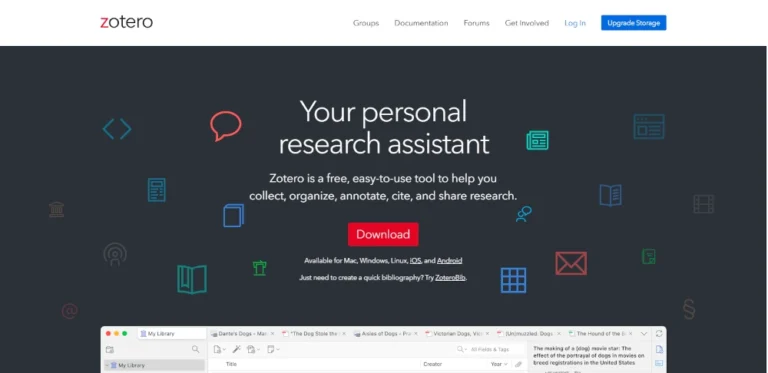The Critical Role of Managed Hosting Security in Protecting Your Clients’ Websites
In today’s digital landscape, where cyber threats are both rampant and sophisticated, the security of client websites is paramount. For those managing websites on behalf of clients, ensuring robust security is not just a responsibility; it’s an imperative to protect against cyberattacks and data breaches that can tarnish reputations and incur severe financial penalties.
Managed hosting emerges as a vital solution in this context. This service extends beyond mere web hosting by providing comprehensive, multi-layered security strategies designed to safeguard websites continuously.
Understanding Managed Hosting
Managed hosting is distinguished from unmanaged hosting by the level of service and support provided. While unmanaged hosting offers basic infrastructure—like server space and network connectivity—it generally leaves server management, including security, in the hands of the client. In contrast, managed hosting involves a proactive approach from the web hosting provider in areas such as server maintenance, security protocol implementation, software updates, and technical support.
Benefits of Managed Hosting Security
The benefits of opting for managed hosting are extensive, particularly regarding security:
- Proactive Monitoring: Managed hosting services employ continuous surveillance techniques to detect and neutralize threats before they can cause harm.
- Tailored Security Measures: Security protocols in managed hosting are often customized to meet the specific needs of each website, providing targeted protection against vulnerabilities.
- Automatic Backups: Regular, automatic backups ensure that data can be quickly restored following any data loss incident, thus minimizing operational downtime.
- 24/7 Expert Support: Round-the-clock access to security experts provides reassurance and immediate assistance in the event of security issues.
- Compliance and Regulations: Managed hosting providers also ensure that websites comply with relevant data protection and privacy laws, an essential factor for businesses handling sensitive information.
Choosing the Right Managed Hosting Provider
Selecting a managed hosting provider involves several steps to ensure that the chosen service meets your clients’ unique security needs:
- Assess Security Needs: Evaluate the specific security requirements of your clients’ websites, considering factors like data sensitivity and compliance requirements.
- Research Providers: Investigate potential hosting providers, focusing on their security reputation and the transparency of their service offerings.
- Compare Security Features: Analyze what different providers offer in terms of security features, such as firewalls, intrusion detection systems, and encryption protocols.
- Consider Cost-Effectiveness: Look at how the pricing models of various providers stack up against the security features they offer. Determine which offers the best value for money while meeting all necessary security requirements.
- Make an Informed Decision: Choose a provider that balances security, cost, and business objectives, ensuring that your choice aligns with your long-term business strategy.
Conclusion
Managed hosting is not merely a hosting solution but a strategic investment in your clients’ digital security. By entrusting server management and security to experienced providers, you can focus more on business development and less on technical challenges. Providers like Fastdot not only assure comprehensive security measures but also support your business growth through reliability and dedicated customer service. With features like a 100% uptime SLA and a robust support team, Fastdot stands out as a dependable partner in managing your hosting needs effectively.
Why Managed Hosting Security is Essential for Protecting Your Clients’ Websites
In an era where digital presence is nearly as crucial as the physical, the security of a website is not just a feature; it is a necessity. This is especially true for those who manage websites on behalf of clients, where the responsibility to safeguard digital assets extends beyond standard business protocols to a duty of care that protects client interests and maintains their trust. Managed hosting security plays a pivotal role in this context, providing a robust shield against the diverse and ever-evolving landscape of cyber threats.
The Importance of Robust Web Security
For businesses, a security breach can result in severe consequences, from the loss of critical data to substantial reputational damage. For those whose operations hinge on client trust—such as digital agencies, web developers, and managed service providers—the impact can be even more catastrophic. In this light, ensuring the highest level of security isn’t just beneficial; it’s imperative.
The Role of Managed Hosting in Enhancing Security
Managed hosting offers a comprehensive approach to tackling the security challenges that threaten online operations. Unlike unmanaged hosting, where the client is primarily responsible for managing and securing the server, managed hosting includes expert oversight of security processes. This includes several key components:
- Proactive Threat Monitoring and Response: Managed hosting providers deploy sophisticated tools to continuously monitor for anomalies and potential threats. This proactive approach ensures threats are identified and mitigated before they can escalate into serious issues.
- Regular Updates and Patch Management: Keeping software up to date is crucial in protecting against vulnerabilities. Managed hosting providers handle these updates and patches, ensuring that the infrastructure remains secure against known exploits.
- Advanced Security Protocols: From firewalls and anti-virus solutions to intrusion detection systems, managed hosting includes the deployment of advanced security measures tailored to protect against a broad spectrum of threats.
- Data Backup and Recovery: Regular, automated backups and robust disaster recovery plans ensure that, in the event of a breach or data loss, websites can be quickly restored with minimal disruption to service.
- Compliance Assurance: Many industries have stringent regulations governing data protection and privacy. Managed hosting providers help ensure that clients’ websites comply with these legal requirements, reducing the risk of penalties and legal issues.
Advantages Over Unmanaged Solutions
While unmanaged hosting may seem cost-effective at first glance, the potential risks and hidden costs of inadequate security can be far greater. Managed hosting offers a cost-effective solution by spreading out the expense of sophisticated security measures across multiple clients, providing small to medium-sized enterprises access to enterprise-level security without the enterprise-level price tag.
Furthermore, managed hosting frees up your resources, allowing you to focus more on strategic initiatives and less on the day-to-day operational challenges of website management. This aspect is particularly crucial for businesses looking to grow and scale efficiently.
Choosing a Managed Hosting Provider
Selecting the right managed hosting provider is critical. It involves understanding your specific security needs and ensuring the provider you choose can meet these requirements. Key considerations should include evaluating the provider’s security track record, the comprehensiveness of their security offerings, and their ability to respond to incidents swiftly and effectively.
Conclusion
Managed hosting security is not just an optional extra; it’s a fundamental aspect of digital strategy for those managing client websites. It ensures that your clients’ websites remain secure, compliant, and available, regardless of the cyber threats they face. In doing so, it not only protects your clients’ digital assets but also supports your reputation as a reliable and security-conscious service provider. For those seeking to maintain and grow their client base, investing in a managed hosting service with robust security measures is an essential strategy for success.





